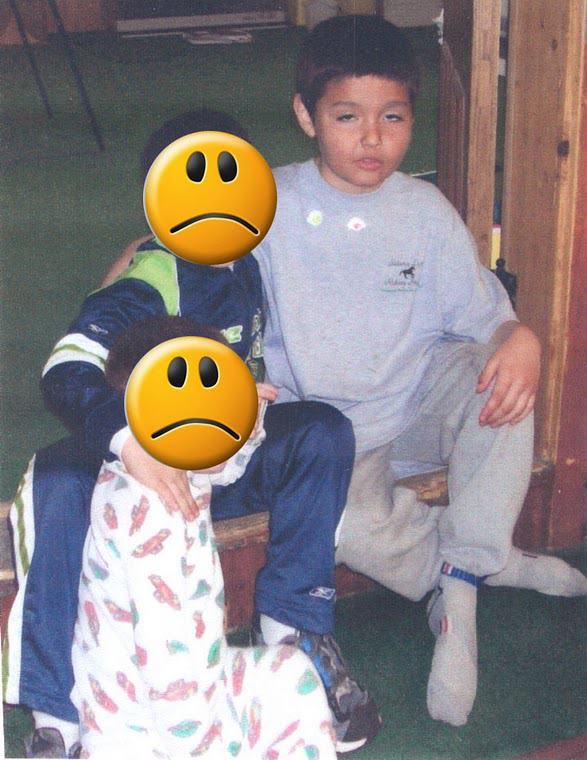Group suing DHS says state 'resistant'
Children's Rights seeks reforms in foster care system.
By GINNIE GRAHAM World Staff Writer
Published: 4/18/2010 2:27 AM
Last Modified: 4/18/2010 4:37 AM
Related Story: DHS spending millions to defend itself in lawsuit
Oklahoma has been as resistant as any state that Children's Rights has sued over child welfare concerns, the group's founder says.
Children's Rights began as a project of the New York Civil Liberties Union and later the American Civil Liberties Union. It became an independent nonprofit in 1995.
The group has filed lawsuits against child welfare systems in Connecticut, Georgia, Kansas, Kentucky, Mississippi, Missouri, New Jersey, New Mexico, New York, Pennsylvania, Tennessee, Wisconsin and Washington, D.C.
Children's Rights filed suit against Oklahoma's Department of Human Services in early 2008 seeking reforms in the foster care system including lowering the caseload among workers, adding training and recruitment for foster families, creating more oversight to ensure visitations are made and lowering placements among foster children.
Nearly all the nonprofit's other lawsuits were settled in consent decrees agreeing to reforms, with some states in their second decade of the settlements. In a 1991 trial against the Washington, D.C., system, a federal judge ruled against the district and reached an out-of-court settlement in 1993 on a reform plan.
"Oklahoma has been as resistant as any state I've encountered,
and in so many ways, fighting the case at all levels," said Children's Rights founder and Executive Director Marcia Robinson Lowry. "The state is entitled to legal claims. But it has resisted fact gathering and is drawing out this process."
Lowry said the state's high rate of abuse and neglect of children in foster care and the frequency of placements drew her organization's attention.
Evidence presented during class-action status hearings showed that 1.2 percent to 1.8 percent of foster children suffer from abuse or neglect, and the average caseload is about 50 per worker.
The nine children originally listed as plaintiffs had a total of 176 caseworkers, 125 secondary workers and 190 supervisors, according to court records.
The children included an 11-month-old with 17 placements and abuse resulting in a skull fracture, a 5-year-old girl going to nine facilities in four counties within a year and a 13-year-old girl who was sexually abused in care, court records state.
Lowry said more than 150 Oklahoma child welfare advocates were interviewed during an eight-month period before the group decided to file the lawsuit.
"We do not become involved in a system unless local providers feel there is a problem and problems that cannot be solved without outside intervention," Lowry said. "We've never become involved in a system without speaking to a large number of people in a state."
Lowry said the suit against Oklahoma is not about recovering monetary damages.
"We are seeking prospective reforms to make things better for people coming into the system," she said. "Our view of the problem is based on the state's own data and from the state child advocates we interviewed."
DHS officials say Children's Rights have received awards in past settlements, including $6.4 million in the Michigan consent decree and $10.5 million from Georgia in its settlement.
Some of the reforms being sought have been instituted since the lawsuit's filing, such as changing the process of when to remove children in order to keep more in their homes.
Also, the Legislature moved oversight of emergency shelters from DHS to the Oklahoma Commission on Children and Youth and stopped law enforcement officers from automatically taking children to shelters.
Defense attorneys argue that a federal decree may interfere with ongoing state cases. DHS officials say a mandated decree may be a hardship on the agency in the long run.
Officials point to a contentious effort by the Washington, D.C., attorney general to end a decree there after a federal judge recently criticized the district for a lack of progress and non-compliance with child welfare statutes.
DHS officials say the child welfare budgets may significantly increase under a decree. It cites Connecticut's child welfare budget growing from $250 million when it entered into a consent decree in 1989 to the current $820 million budget, and Michigan's budget growing from $32 million to $129 million within two years of a settlement.
However, Lowry said reforms can make a system more efficient in the long run and will save children's lives.
"You have to ask 'what are you prepared to do to save a person's life,' but also a mismanaged system is not saving the state money," Lowry said.
Ginnie Graham 581-8376
Ginnie.graham@tulsaworld.com
By GINNIE GRAHAM World Staff Writer
http://www.tulsaworld.com/news/article.aspx?subjectid=16&articleid=20100418_16_A8_Oklaho901763
Exposing Child UN-Protective Services and the Deceitful Practices They Use to Rip Families Apart/Where Relative Placement is NOT an Option, as Stated by a DCYF Supervisor
Unbiased Reporting
What I post on this Blog does not mean I agree with the articles or disagree. I call it Unbiased Reporting!
Isabella Brooke Knightly and Austin Gamez-Knightly

In Memory of my Loving Husband, William F. Knightly Jr. Murdered by ILLEGAL Palliative Care at a Nashua, NH Hospital
Subscribe to:
Post Comments (Atom)
No comments:
Post a Comment